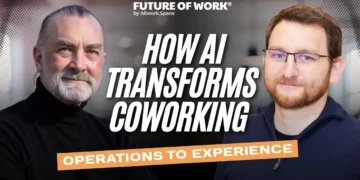What’s going on:
A new law in New York City took effect on Wednesday, which will require businesses that use artificial intelligence (AI) in their hiring processes to demonstrate that the process is free from sexism and racism, according to NBC.
The law mandates that AI-based hiring software, known as an automatic employment decision tool (AEDT), must undergo an audit by a third-party company to ensure it does not exhibit any racist or sexist bias. Moreover, companies must publish these audit results and are prohibited from using AEDTs that have not been audited. Companies that don’t adhere to the new legislation could be fined up to $1,500 per violation a day.
Why it matters:
The increasing use of AI in hiring processes has raised concerns about potential biases in the labor market. Studies have shown that extreme bias such as racism and sexism can exist in AI programs based on the data that the AI models are trained on, according to NBC.
The NYC legislation is one of the first of its kind, and supporters of the law see it as a step towards ensuring fairness and equality in the hiring process. However, some critics have pointed out that the law is still limited and does not cover all forms of discrimination, such as age-based discrimination or discrimination against people with disabilities.
How it’ll impact the future:
The NYC law could set a precedent for other cities and countries to follow a similar route in creating policy, leading to more widespread regulation of AI in hiring processes. It could also push major companies to be more transparent about their hiring practices and encourage them to take steps to eliminate extreme bias from their AI systems. However, there are concerns about how effectively the law will be enforced and whether it will be taken seriously by these companies.
In NYC, this law will lead to greater scrutiny of AI hiring tools and therefore more efforts to ensure they are fair and effective. The law could influence how businesses approach their hiring processes and how they use technology such as AEDTs in these processes. It could lead to a more diverse and inclusive workforce by helping to eliminate biases produced by AI tools in the hiring process.



 Dr. Gleb Tsipursky – The Office Whisperer
Dr. Gleb Tsipursky – The Office Whisperer Nirit Cohen – WorkFutures
Nirit Cohen – WorkFutures Angela Howard – Culture Expert
Angela Howard – Culture Expert Drew Jones – Design & Innovation
Drew Jones – Design & Innovation Jonathan Price – CRE & Flex Expert
Jonathan Price – CRE & Flex Expert











